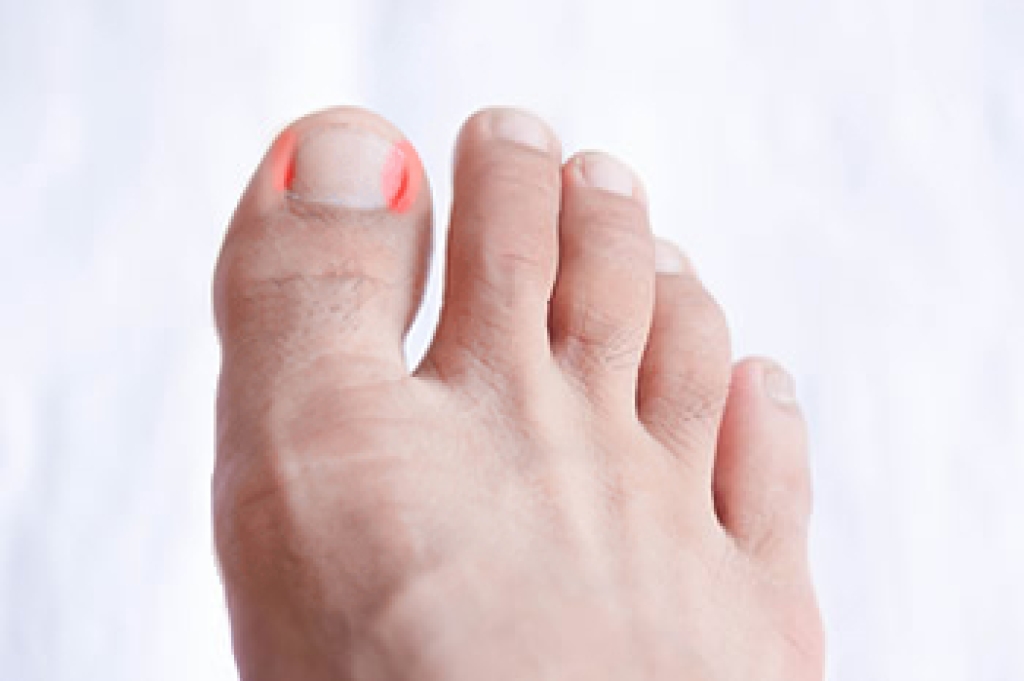
An ingrown toenail occurs when the nail grows into the skin surrounding it. Oftentimes this happens from cutting toenails too short and tapering nail edges. Ingrown toenails can also occur from wearing shoes or socks that are too tight or short or from a trauma, such as stubbing the toe. It can look bad and feel painful. It can also turn into an infection. The correct way of trimming toenails is to cut them straight across with no curvature. If you have cut the nails properly, you should be able to get a fingernail under the sides and end of the nail. If you have an ingrown toenail, you can try soaking the toe in warm water with Epsom salts, which may help soften the skin surrounding the toenail and reduce inflammation and pain. Consider wearing sandals or shoes with a lot of room in the toe box until the nail has healed. If the toenail looks infected or if it is not healing well, see a podiatrist who can suggest further treatments.
Ingrown toenails may initially present themselves as a minor discomfort, but they may progress into an infection in the skin without proper treatment. For more information about ingrown toenails, contact Dr. Yeon A. Shim of Roselle Podiatry Group. Our doctor can provide the care you need to keep you pain-free and on your feet.
Ingrown Toenails
Ingrown toenails are caused when the corner or side of a toenail grows into the soft flesh surrounding it. They often result in redness, swelling, pain, and in some cases, infection. This condition typically affects the big toe and may recur if it is not treated properly.
Causes
- Improper toenail trimming
- Genetics
- Improper shoe fitting
- Injury from pedicures or nail picking
- Abnormal gait
- Poor hygiene
You are more likely to develop an ingrown toenail if you are obese, have diabetes, arthritis, or have any fungal infection in your nails. Additionally, people who have foot or toe deformities are at a higher risk of developing an ingrown toenail.
Symptoms
Some symptoms of ingrown toenails are redness, swelling, and pain. In rare cases, there may be a yellowish drainage coming from the nail.
Treatment
Ignoring an ingrown toenail can have serious complications. Infections of the nail border can progress to a deeper soft-tissue infection, which can then turn into a bone infection. You should always speak with your podiatrist if you suspect you have an ingrown toenail, especially if you have diabetes or poor circulation.
If you have any questions, please feel free to contact our office located in Roselle, NJ . We offer the newest diagnostic and treatment technologies for all your foot care needs.

